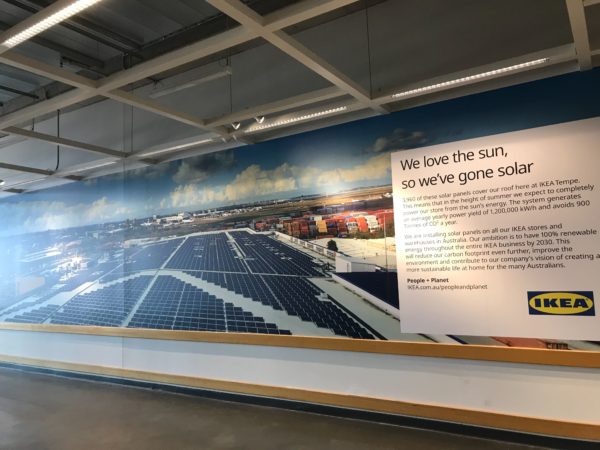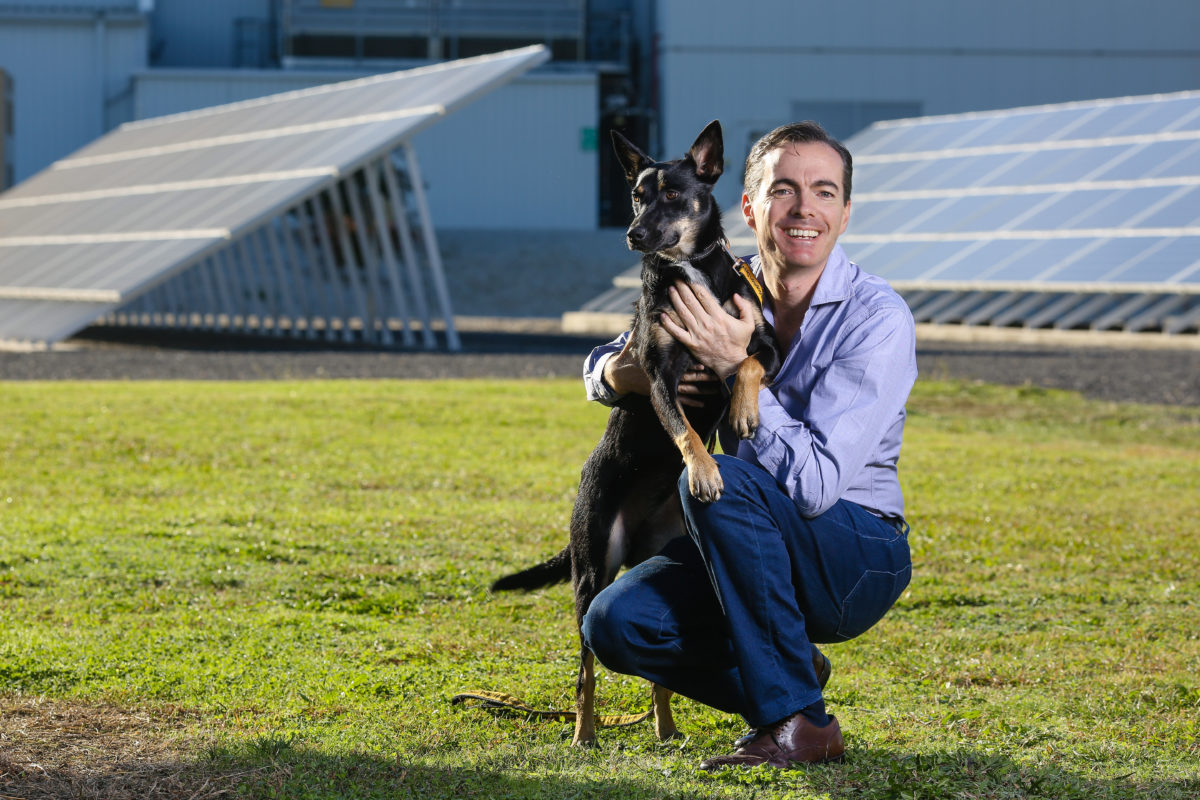A uComms poll commissioned by Greenpeace Australia Pacific and released today found that some 70% of Australians want companies operating locally to set a goal to power their business with 100% renewable energy — as part of their responsibility to tackle climate change.
The poll is a precursor to the launch next week of REenergise, one of the environmental organisation’s biggest campaigns yet to shift the dial on Australia’s emissions and more broadly on climate change.
Senior Greenpeace Campaigner, Lindsay Soutar told pv magazine that on Wednesday next week “we’ll be releasing a report and a website that tracks the renewable energy commitment and activities of 80 companies operating in Australia.”
Greenpeace, which has more than a million listed supporters in Australia, will then run “rolling campaigns calling on all of those companies to make commitments to achieve 100% renewable by 2030, and match those commitments with immediate action,” says Soutar.
The push for corporates to achieve 100% renewable energy use has already gathered some momentum in Australia: confectionary giant, Mars, for example, made the commitment via a 20-year renewable power purchase agreement (PPA) for 43 MW of power per year with Kiamal Solar Farm, which will start generating in 2020 and complement commercial-scale rooftop solar PV installations to completely provide for Mars’s Australian energy requirements.
Banks strive for a sunny disposition
RE100, the global leadership initiative focused on increasing corporate demand for renewable energy, has helped several big Australian operators make the 100% commitment, including the country’s four major banks, plus Atlassian, QBE and Bank Australia.
RE100 is spearheaded in Australia by social entrepreneur Jon Dee, who told pv magazine that he’s close to signing a fifth major banking institution, and has his sights on “20 more substantial companies” to join the movement by 2020.
“Obviously RE100 has quite a bit of momentum and is very active here in Australia, so some of the companies Greenpeace is engaging with are choosing to make those commitments through RE100,” says Soutar.
Beer and Skittles go green
The Greenpeace campaign will profile first movers such as Mars and Carlton & United Breweries (CUB) as examples of how companies can source their renewable-energy supply.
CUB, for example, signed a 12-year PPA with Karadoc Solar Farm in Victoria, and is installing solar panels on the roofs of its Abbotsford Brewery in Melbourne and Yatala Brewery in Queensland, with the outcome that VB will be 100% renewably powered in 2020, as CUB moves towards the same milestone across all its Australian operations by 2025.
Greenpeace’s REenergise campaign website will provide “a whole lot of data on what companies are doing”, says Soutar, and show the potential outcome — in terms of driving new renewable generation and reducing emissions — of all 80 companies shifting their operations to renewably sourced electricity.
The role of corporates in renewable proliferation
According to Energetics’ Corporate renewable energy PPA deal tracker the PPA model of renewable-energy purchase has supported 4.2 GW of renewable-energy projects in Australia since 2016, and a large number of PPAs are progressing towards completion in 2019.
Soutar lauds the activities of the Business Renewables Centre of Australia in educating and facilitating local corporations in sourcing the right PPA for their energy needs and social-license goals, and says REenergise will refer businesses to BRC-A as an information resource for transforming their electricity supply.
“Businesses are choosing renewables for a range of reasons,” she says: “It makes economic and financial sense, there’s demand from employees, from investors; and there’s obviously the really critical aspect of tackling climate change, and companies being responsible on the climate risk front.”
The Greenpeace-commissioned poll of 1,602 people from across the Australian political spectrum found that 67.8% of respondents said they would prefer to work for a company that was using renewable energy; and 78.9% agreed that Australian companies should be using more renewable energy to power their operations.
Federal fail is a big-business opportunity
Soutar says, “We were looking around at the landscape here in Australia and seeing a complete failure of the Federal Government to act on climate change, and that in the absence of action from the Federal Government some companies are stepping up and proving that 100% renewable is 100% doable.”
The poll confirmed that Australians would back a campaign to “encourage that leadership to continue to grow”, she says.
More than 65% of people polled by uComm said they would be more likely to buy a product or service from a company that uses renewable energy, than from a company that doesn’t.
The timing is right, the activist organisation believes, to turn up the encouragement for a switch to renewables by putting 80 high-profile firms under the energy microscope.

Image: Greenpeace
“These companies are close to home for many people,” Souter told pv magazine. “They’re the supermarkets we shop at every day, they’re the companies that make our cheese and our beer. People want to know that the products they’re sourcing and the places they’re purchasing from are doing the right thing.
“When it comes to climate change, companies can go from being a big part of the problem to being a big part of the solution,” she concluded.
This content is protected by copyright and may not be reused. If you want to cooperate with us and would like to reuse some of our content, please contact: editors@pv-magazine.com.









By submitting this form you agree to pv magazine using your data for the purposes of publishing your comment.
Your personal data will only be disclosed or otherwise transmitted to third parties for the purposes of spam filtering or if this is necessary for technical maintenance of the website. Any other transfer to third parties will not take place unless this is justified on the basis of applicable data protection regulations or if pv magazine is legally obliged to do so.
You may revoke this consent at any time with effect for the future, in which case your personal data will be deleted immediately. Otherwise, your data will be deleted if pv magazine has processed your request or the purpose of data storage is fulfilled.
Further information on data privacy can be found in our Data Protection Policy.